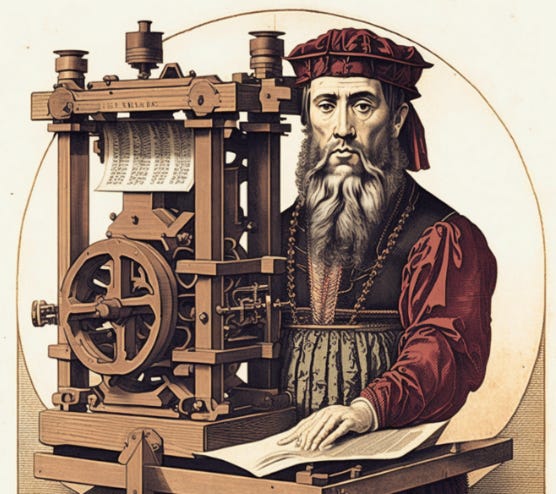Free Speech Online is Gutenberg 2.0
With the collapse of censorship and the legacy media we are about to enter a golden age for liberty. We know this because it's happened before.
Since Trump's win it's felt like the entire world transformed.
Partly because Trump is now a battle-hardened firebrand, but mostly because his win showed the elite could throw everything they have -- impeachment,…



